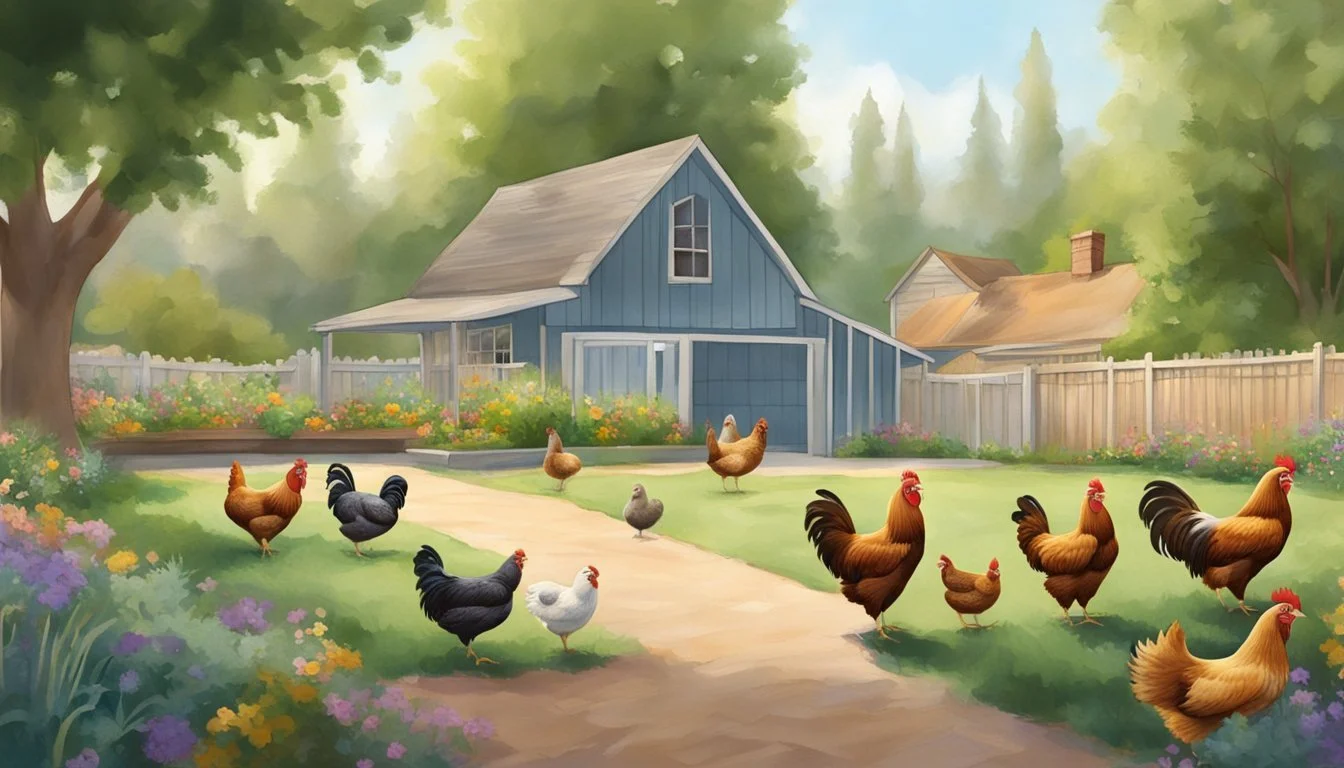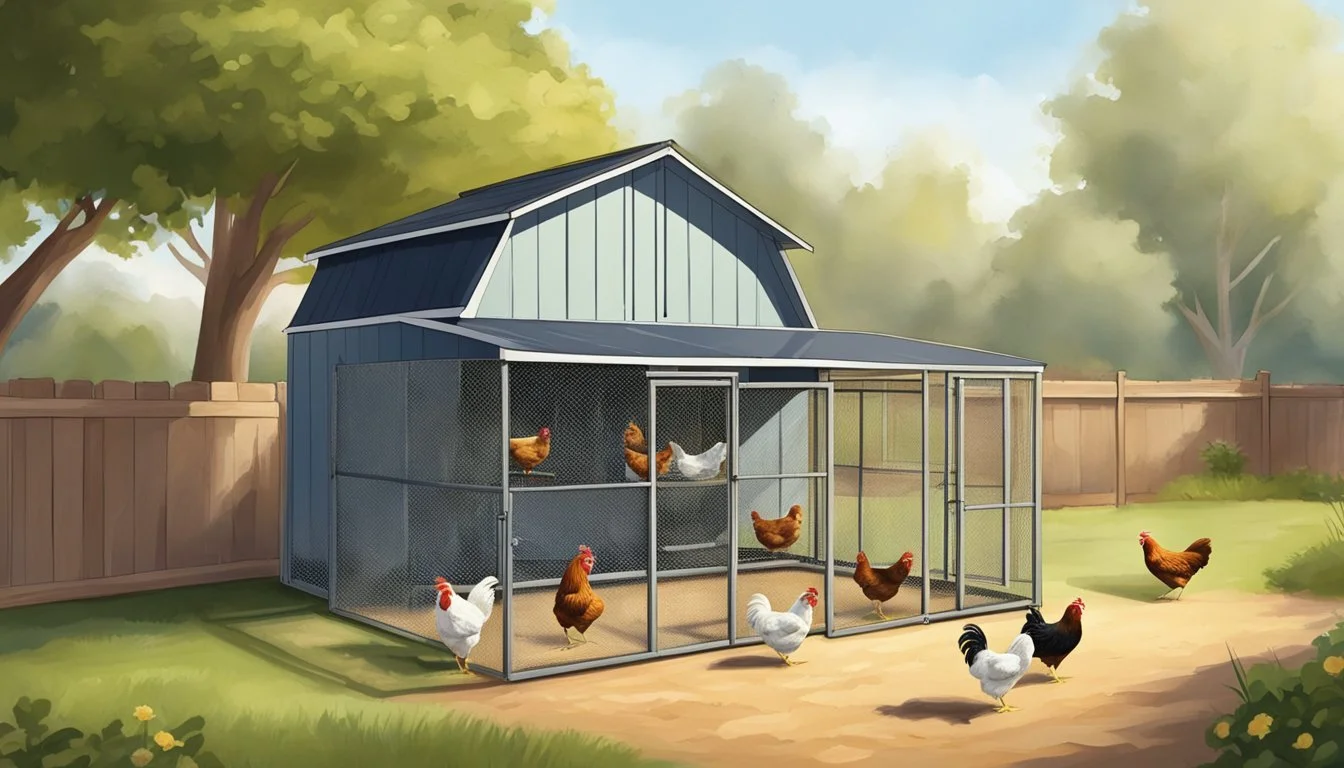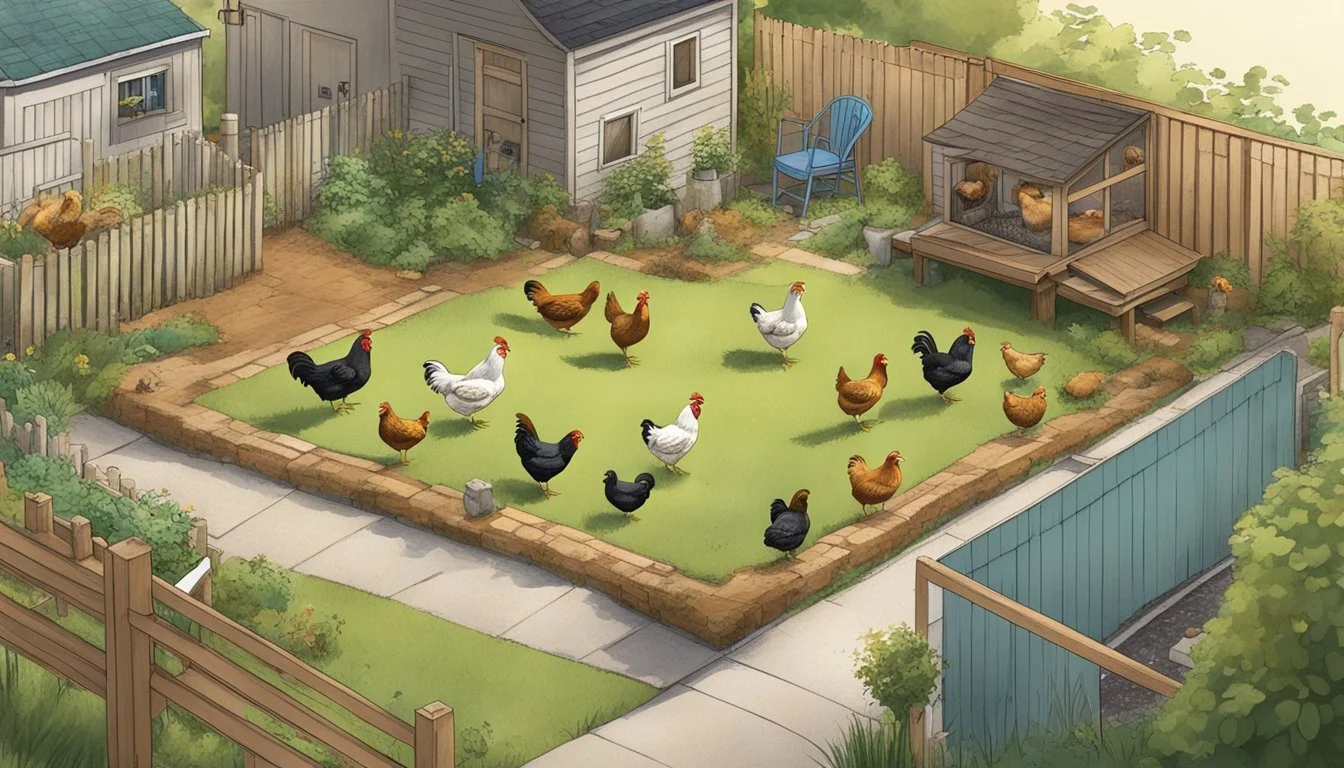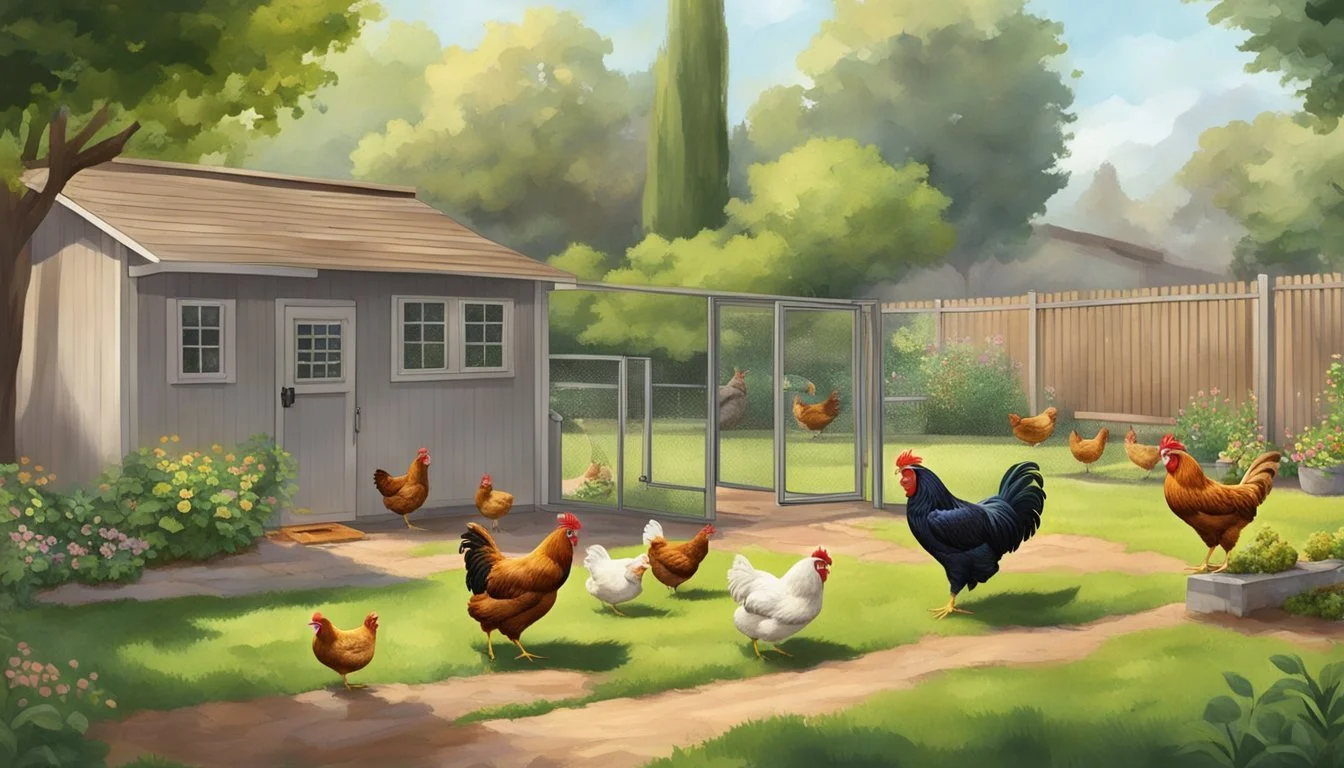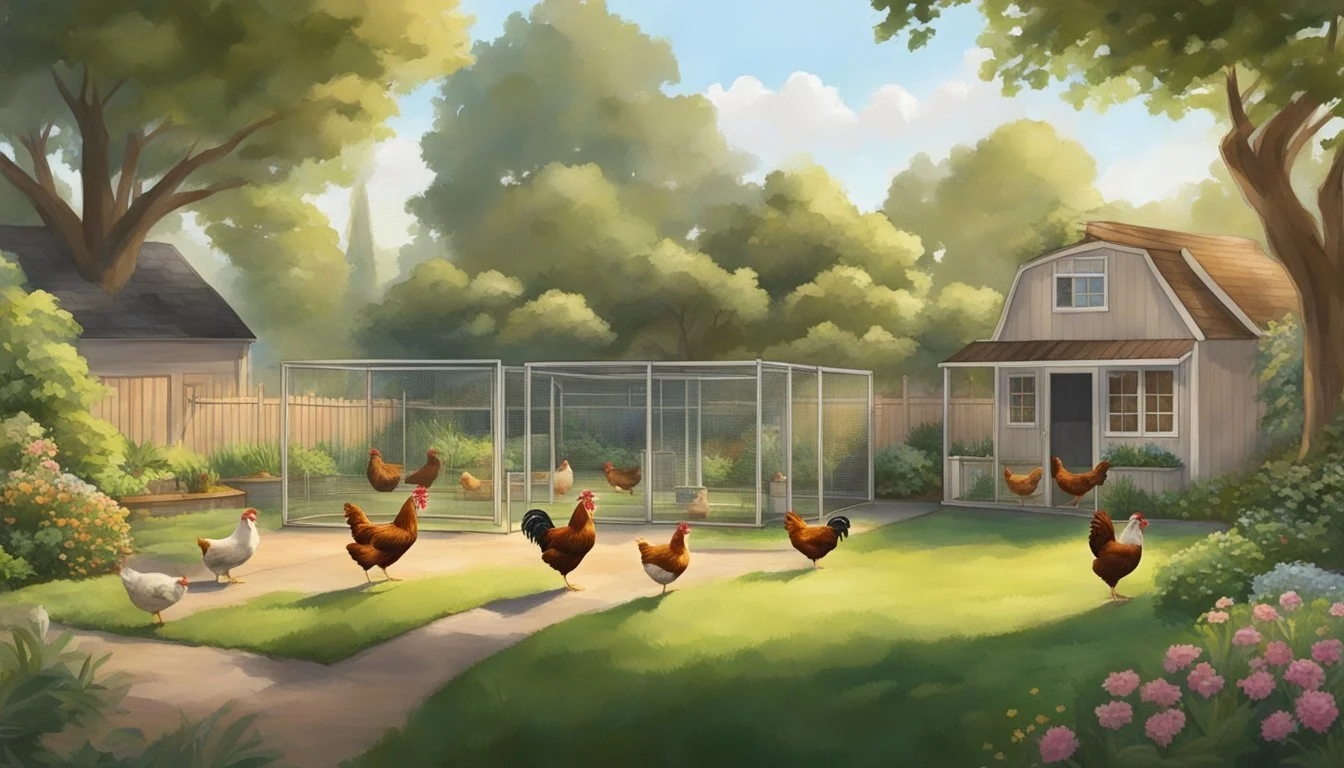Keeping Backyard Chickens in Visalia, CA
A Guide to Starting Your Flock
The city of Visalia, California is at the heart of a discussion that is becoming increasingly common in urban areas across the United States: should residents be allowed to keep backyard chickens? As the cost of living rises and self-sustainability becomes more valued, the trend of raising backyard chickens has gained momentum. This practice offers numerous advantages such as a local source of eggs, natural pest control, and the joys of animal husbandry. Nevertheless, the Visalia City Council is tasked with balancing the benefits against potential concerns like nuisance and public health issues.
Consequently, the council is considering an ordinance that could potentially authorize the keeping of chickens in residential areas. The move reflects a growing acknowledgement of urban agriculture practices and the desire of citizens to engage more intimately with their food sources. Engaging in this practice isn’t just a passing trend—it taps into a deeper shift towards sustainable living, connecting residents to a more agrarian past while addressing modern economic and environmental interests.
While the discussion in Visalia is ongoing, the implications extend beyond the city limits. The outcome could set a precedent for neighboring communities, offering a model for integrating traditional agricultural practices into modern urban settings. As Visalia contemplates this issue, it's clear that the decision will have a substantial impact on how residential areas can support the aspirations of those looking to foster a closer relationship with their food and environment.
Understanding Local Ordinances and Regulations
Navigating the rules around keeping backyard chickens in Visalia, CA, hinges on understanding the specific ordinances enacted by the city council, stipulations related to zoning and residential areas, as well as the permitting process and legal groundwork laid out by local government.
Visalia City Council and Ordinance Updates
The Visalia City Council periodically reviews and updates the municipal code, including ordinances related to the keeping of chickens within city limits. Discussions have taken place against the backdrop of rising egg prices, with proposals to allow residents the right to keep chickens. However, as of the last update, the council decided not to amend the municipal code to permit chickens in most residential zones.
Zoning and Residential Area Considerations
Zoning regulations are crucial when it comes to the keeping of chickens in Visalia. Currently, the municipal code categorizes chickens as farm animals, which are typically not permitted in residential zones. Prospective chicken owners need to check the exact specifics of their zone to confirm if any exemptions might apply, or if future ordinance changes might alter their eligibility.
Permitting Process and Legal Requirements
For those residing in areas where keeping chickens is permissible, navigating the permitting process is essential. Local laws may require residents to obtain a permit before setting up a chicken coop. The legal requirements also mandate coops to maintain a minimum distance of 10 feet from habitable structures to address concerns about noise and sanitation. Additionally, any processing of chickens must be conducted indoors to comply with health and safety regulations.
Setting Up Your Chicken Coop
When setting up a chicken coop in Visalia, CA, one must consider location, construction specifics, and waste management to create a suitable environment for the chickens.
Choosing the Right Location
To ensure the health and safety of backyard chickens, the coop should be positioned on high ground. This placement prevents flooding and reduces moisture-related issues.
Elevation: Coops built on elevated areas help avoid water accumulation.
Sunlight: Position the coop to receive adequate sunlight which helps in maintaining a dry and warm environment.
Distance: Maintain proper distance from property lines to respect local ordinances.
Coop Design and Construction Requirements
A sturdy chicken coop is essential to protect backyard poultry from predators and harsh weather.
Enclosures: Secure latches are crucial since predators like raccoons are adept at opening simple fastenings.
Materials: Use durable materials capable of withstanding Visalia's weather conditions.
Ventilation: Proper ventilation is necessary to dispel odors and provide fresh air.
Maintaining Cleanliness and Managing Waste
Consistent cleaning routines and waste management practices are vital to preventing the spread of disease and maintaining a healthy living environment.
Daily Cleaning: Regularly remove droppings to maintain coop hygiene.
Composting: Chicken manure can be composted and used as fertilizer.
By addressing these factors, Visalia residents can establish successful backyard coops.
Chicken Care and Management
Proper care and management of backyard chickens ensures the health and productivity of the flock. Attention to the selection of chicken breeds, regular health care, and efficient egg production strategies are paramount.
Selecting Chicken Breeds
When selecting chicken breeds for a backyard setting in Visalia, CA, potential poultry keepers should consider factors such as climate adaptability, temperament, and egg-laying capabilities. For instance, Plymouth Rocks and Rhode Island Reds are hardy breeds that fare well in various conditions and are known for consistent egg laying.
Feeding and Health Care
Chickens require a balanced diet and proper health care to prevent diseases and promote egg production. A typical chicken diet consists of:
Layer pellets: Provide necessary nutrients for egg-laying hens.
Grit: Helps in digestion.
Fresh greens and vegetables: Offer vitamins and minerals.
Regular health check-ups and vaccinations are crucial to prevent common poultry diseases like avian influenza and Marek's disease. Clean water should be accessible at all times, and coops must be kept clean to reduce health risks.
Egg Production and Collection
Hens typically lay eggs once a day, with egg production peaking in their first year. Implementing a routine for egg collection is important to maintain fresh egg supply and prevent eggs from becoming dirty or damaged. Most hens will lay eggs in designated nesting boxes if they are provided with a comfortable and quiet environment. It is essential to collect eggs at least once daily, and more frequently during warm weather, to ensure they remain clean and fresh.
Community Relations and Responsibilities
When Visalia residents consider keeping backyard chickens, it's essential to acknowledge that they are not only caring for pets but also becoming stewards of community relations. Ensuring neighborly goodwill and maintaining property values are paramount considerations.
Dealing with Neighbors and Noise Issues
Residents must address potential noise issues to ensure harmony with their neighbors. Chickens, by nature, can be noisy, particularly in the early morning. Residents should place coops thoughtfully, adhering to Visalia’s regulations requiring a minimum separation of 10 feet from habitable structures, to mitigate noise. Conversations with neighbors can preempt complaints and foster understanding. Sharing fresh eggs might also sweeten the rapport.
Strategies for Noise Management:
Position coops away from neighbor’s bedrooms.
Utilize sound-absorbing materials around the coop.
Engage in open dialogues with neighbors to discuss any concerns.
Understanding Property Values and Aesthetics
The presence of chicken coops can influence property values, making it vital for residents to consider the aesthetics and upkeep of their enclosures. Well-maintained coops can blend seamlessly into residential zones without adversely affecting the visual appeal. Residents should ensure coops are designed not only for functionality but to complement the neighborhood aesthetics. Regular maintenance is essential to avoid unpleasant odors or unsightly conditions that could negatively impact neighboring property values.
Maintaining Aesthetic Standards:
Construct visually appealing coops that match the home's aesthetic.
Keep coops clean and free of debris.
Regularly check property lines and ensure coops do not encroach on neighbors’ spaces.
Environmental and Public Health Concerns
When discussing the topic of keeping backyard chickens in Visalia, it's important to focus on two major aspects: managing odor and pests, and ensuring proper procedures for slaughter and disease prevention.
Addressing Odor and Pest Control
One of the primary concerns is the odor generated from chicken waste. To combat potential issues, chicken owners must regularly clean coops and dispose of manure properly. Accumulated waste not only produces unpleasant smells but also attracts pests which can pose health risks. Implementing a schedule for waste removal and coop cleaning is essential.
Strategies for Odor and Pest Management:
Regular Cleaning: Coops should be cleaned at least once a week to minimize odor.
Secure Storage: Store manure in airtight containers until it can be removed or composted.
Pest-proof Coops: Ensure coops are secure to prevent entry from rodents and insects.
Handling Slaughter and Disease Prevention
When it comes to slaughtering chickens, it must be done humanely and in a manner that does not pose public health risks. The process should be carried out away from living areas to prevent any potential spread of disease. It is also critical that any tools used for the slaughter are sanitized to prevent contamination. Continuous monitoring for signs of illness in the flock is key for disease prevention.
Key Aspects of Slaughter and Disease Control:
Regulated Slaughter Areas: Designate specific areas for slaughtering away from general housing to maintain hygiene.
Sanitation Protocols: Sterilize equipment before and after use to reduce the risk of disease transmission.
Health Surveillance: Regularly monitor the health of the chickens and isolate any sick birds promptly.
Advocacy and Legal Developments
The discussion on allowing backyard chickens in Visalia has evolved through city council hearings and has seen significant community engagement influencing local policies.
Following City Council Hearings
The Visalia City Council held public hearings where they contemplated an ordinance that would allow residents to keep chickens in their backyards. During these sessions, they examined concerns related to egg price surges and citizen desire for fresh eggs. A notable meeting took place on May 15, 2023, where the Council voted against initiating code changes that would permit keeping chickens in residential zones.
Proponents argued for the benefits such as self-sustainability and fresh produce.
Opponents raised concerns about potential nuisances and the impact on neighborhood quality.
As part of the governance process, the City Manager and code enforcement officials were likely involved in providing expert insights on the practical implications of the proposed ordinance updates.
Participating in Local Governance and Policy Changes
Residents of Visalia have actively participated in the governance process, providing feedback and suggestions on the potential chicken ordinance. They have engaged through:
Submitting petitions advocating for and against the regulation of backyard chickens.
Presenting their views at city council meetings.
This active community involvement underscores the importance of public participation in shaping the policies that directly affect their everyday lives. It reflects the democratic process at work within the community on matters of local urban agriculture and sustainability.
Comparing Regional Chicken-Keeping Policies
In the Central San Joaquin Valley, municipalities are reevaluating their stances on urban chicken farming, a movement driven by economic pressure, agricultural heritage, and public interest.
Case Studies from Neighboring Cities and Counties
Fresno and Clovis: These cities allow residents to keep chickens, but with regulations that include setback requirements from property lines and dwelling units. Fresno, for instance, allows up to 15 chickens without a permit, provided they are kept 35 feet away from a residence.
Tulare County: More rural than its neighbors, it has traditionally been more permissive about keeping chickens. However, specifics vary between communities.
San Francisco and Oakland: As more urban examples, both cities permit backyard chickens but under strict conditions that emphasize sanitation, noise control, and the prohibition of roosters.
Los Angeles and San Diego: These cities represent the state's largest urban populations with progressive chicken-keeping policies, reflecting a trend in large coastal cities to accommodate urban agriculture.
Analysis of Statewide Trends in Urban Chicken Farming
State Regulations: California allows municipalities to set their own regulations regarding backyard chickens, leading to a diverse regulatory landscape.
Agricultural Cities: In cities where agriculture forms the economic backbone, such as those within Tulare County and the surrounding San Joaquin Valley, there is often more acceptance and support for urban chicken farming.
Urban Trends: Cities like San Francisco and Los Angeles have developed clearer, more supportive policies for urban chicken keepers, indicative of the statewide trend towards embracing urban agriculture as a viable supplement to traditional food sources.
By observing neighboring cities like Woodlake, Lindsay, and Farmersville, one can see a cautious approach whereby the benefits of urban chicken farming are balanced with concerns for noise, odors, and potential health issues. Visalia is similarly positioned as it considers an update to its own municipal code, influenced by discussions among city officials, including Mayor Steve Nelsen and Councilmember Greg Collins, as well as input from the Planning Commission and citizen advocates. The dialogue indicates a regional openness to revise and potentially relax restrictions in response to increasing egg prices and renewed interest in self-sufficiency, a sentiment echoed across various municipalities of varying sizes throughout California.
Other Considerations for Backyard Chickens
When considering backyard chickens in Visalia, CA, one must account for both the regulations of local governing bodies as well as the communal framework that supports or restricts poultry keeping. Interaction with homeowner associations and the possibility of including other farm animals are notable factors.
Involvement of Homeowner Associations and Community Groups
Homeowner Associations (HOAs) often have supplementary rules that can affect the keeping of chickens in urban areas. These rules might address issues such as coop placement, noise control, and the number of animals allowed. Residents should check with their HOA for any additional requirements or restrictions that may impact their ability to keep chickens.
Diversifying with Other Farm Animals
While chickens are a common starting point for urban homesteading, some may wish to diversify by including other farm animals. In Visalia, any expansion to include other kinds of livestock should be done cautiously, with awareness of the specific needs and regulations concerning each animal. For instance, miniature goats can be considered due to their size and compatibility with smaller spaces, but they still require appropriate shelter and fencing.
Residents should thoroughly research and ensure compliance with all Visalia city ordinances related to keeping multiple types of farm animals within residential zones.
Supplementary Activities and Benefits
In Visalia, CA, residents who keep backyard chickens can engage in various supplementary activities that provide remarkable benefits to both their gardens and the environment.
Gardening and Complementary Agricultural Practices
Backyard chickens can play a pivotal role in a sustainable garden ecosystem. Gardeners can incorporate chickens into their gardening practices to achieve a more fruitful produce yield. These birds naturally till the soil while searching for insects, reducing the need for mechanical intervention. They also contribute to pest control by eating common garden pests, promoting healthier plant growth. Residents of Visalia, understanding their local climate, can align these agricultural practices to maximize their garden's potential, resulting in robust, homegrown produce.
Creating a Source of Fertilizer and Enriching Soil
Another advantage of keeping chickens is the invaluable fertilizer they produce. Chicken manure is rich in nitrogen, phosphorus, and potassium, key nutrients essential for plant growth. Homeowners can use this manure in their composting efforts, transforming waste into a booming resource for their gardens. Over time, the application of this organic compost significantly enriches the soil structure and fertility, leading to a more vibrant and productive garden ecosystem. This not only benefits residents' gardens but also contributes to a more sustainable living environment in Visalia.
Conclusion
The city of Visalia, historically known for its agricultural roots, has recently engaged in a community-wide discussion about integrating backyard chickens into its urban landscape. Residents hoping to embrace this practice have rallied for an ordinance change, aiming to access fresher eggs and partake in sustainable living, despite the city council initially voting against such measures.
In residential zones, the proposed guidelines would necessitate proper enclosures to ensure both the animals' welfare and neighborhood harmony. Authorities emphasize the importance of awareness regarding upkeep and responsibility that come with raising poultry in a suburban setting.
Regulatory Framework:
Enclosures must adhere to specified dimensions.
Application and permit fees apply.
Residential chicken keeping is subject to city ordinances.
Local engagement in Visalia indicates a growing trend, aligning with the broader movement towards self-sufficiency and local food sources. The city's decision will ultimately reflect its dedication to adaptability and resident interests in the evolving urban-rural dynamic.

